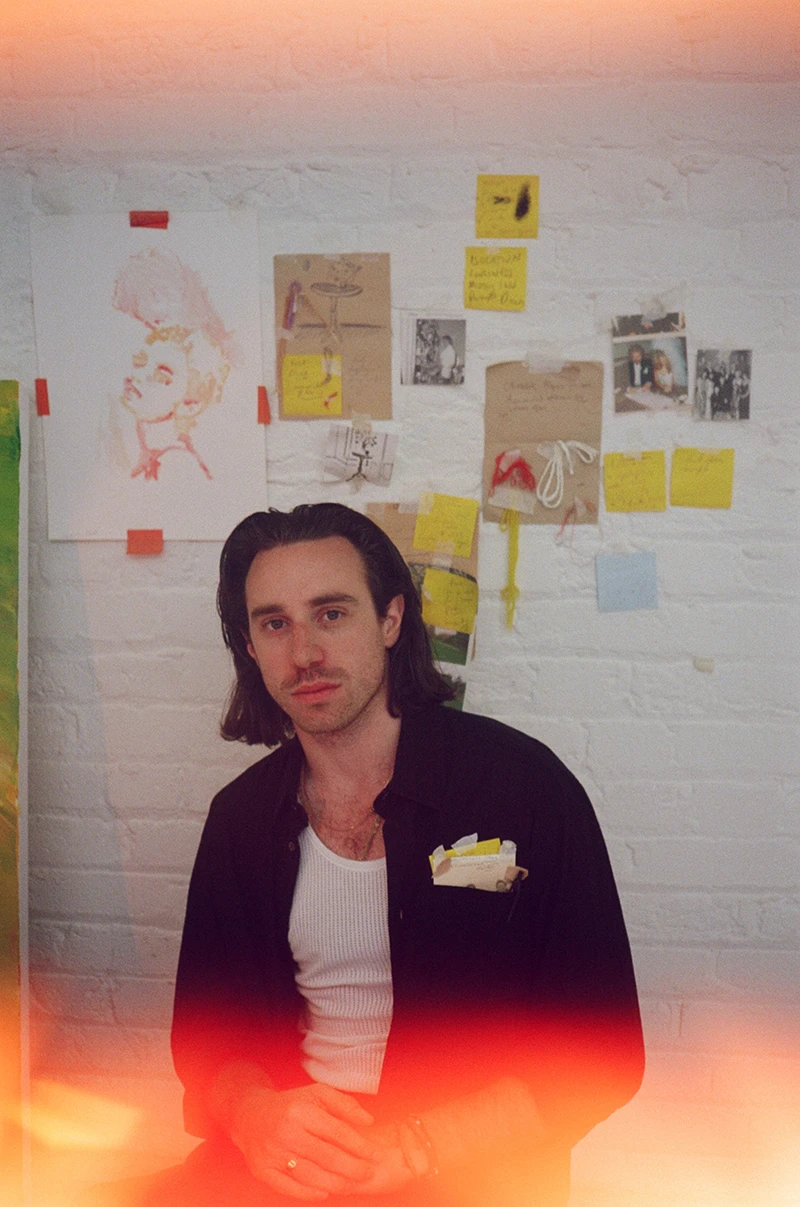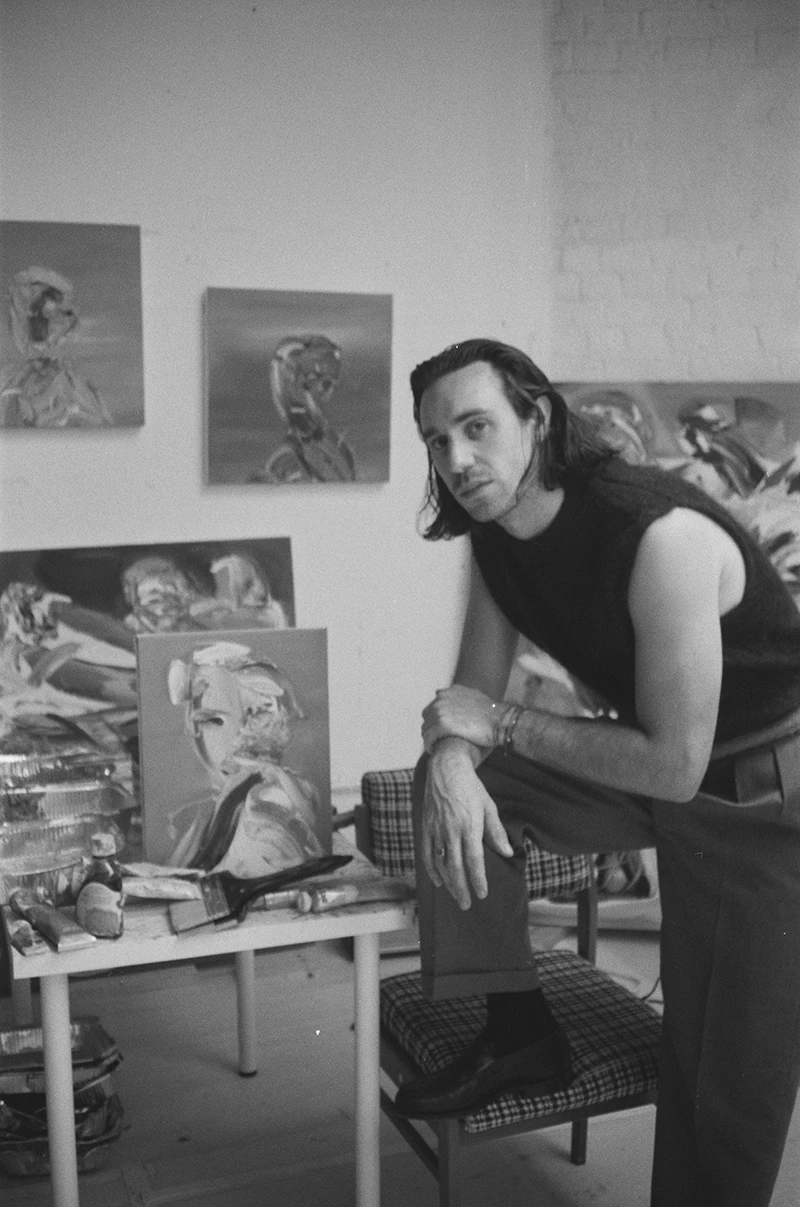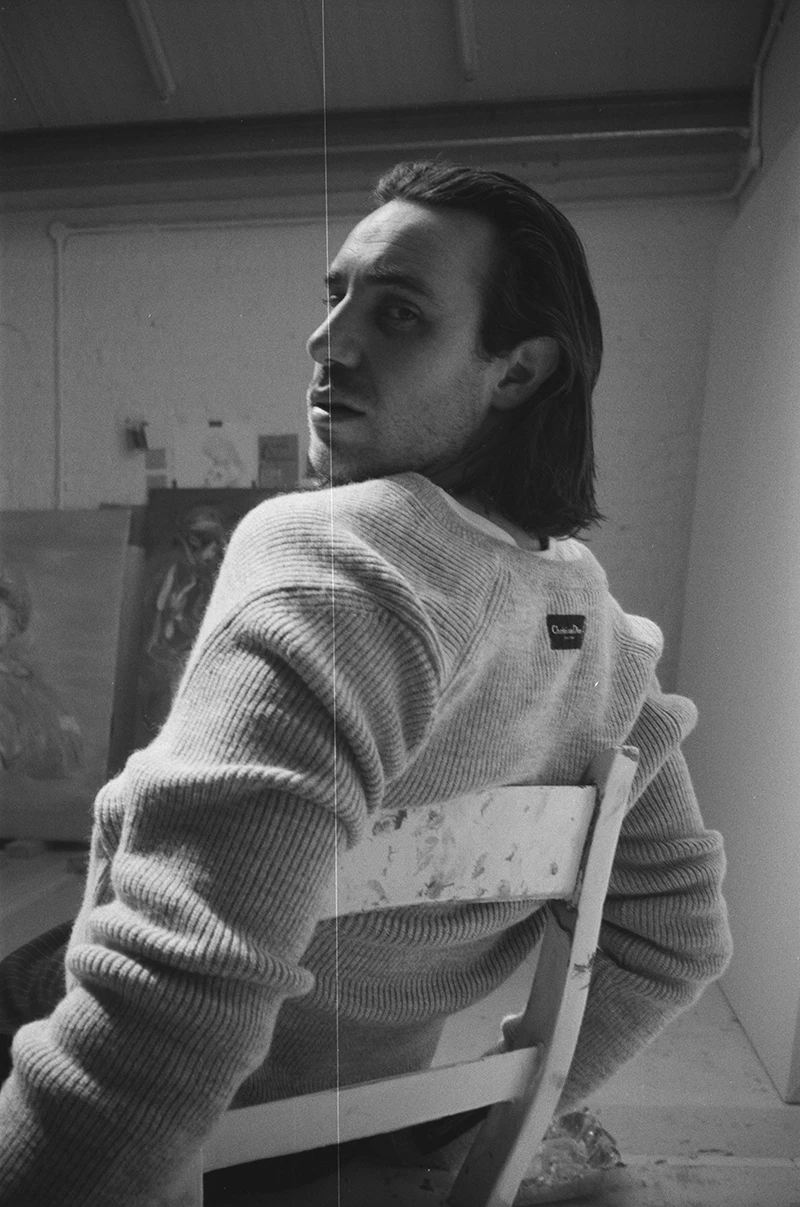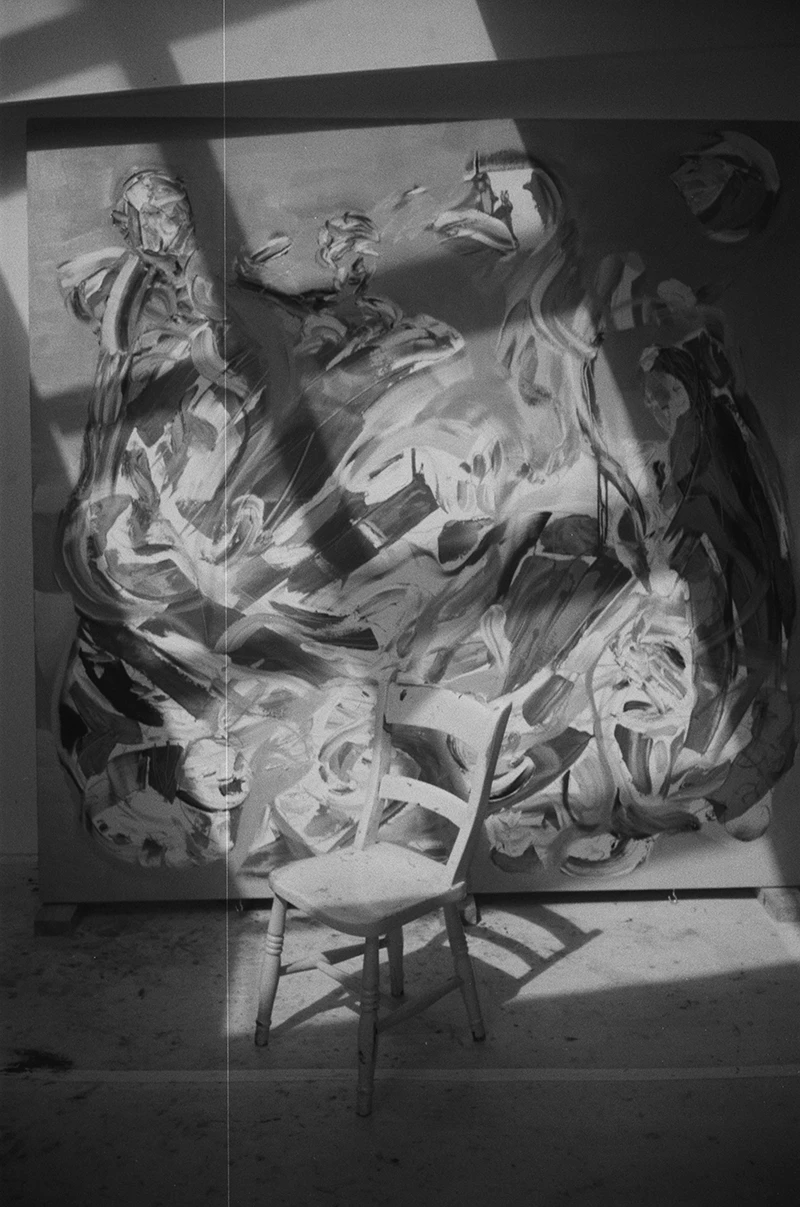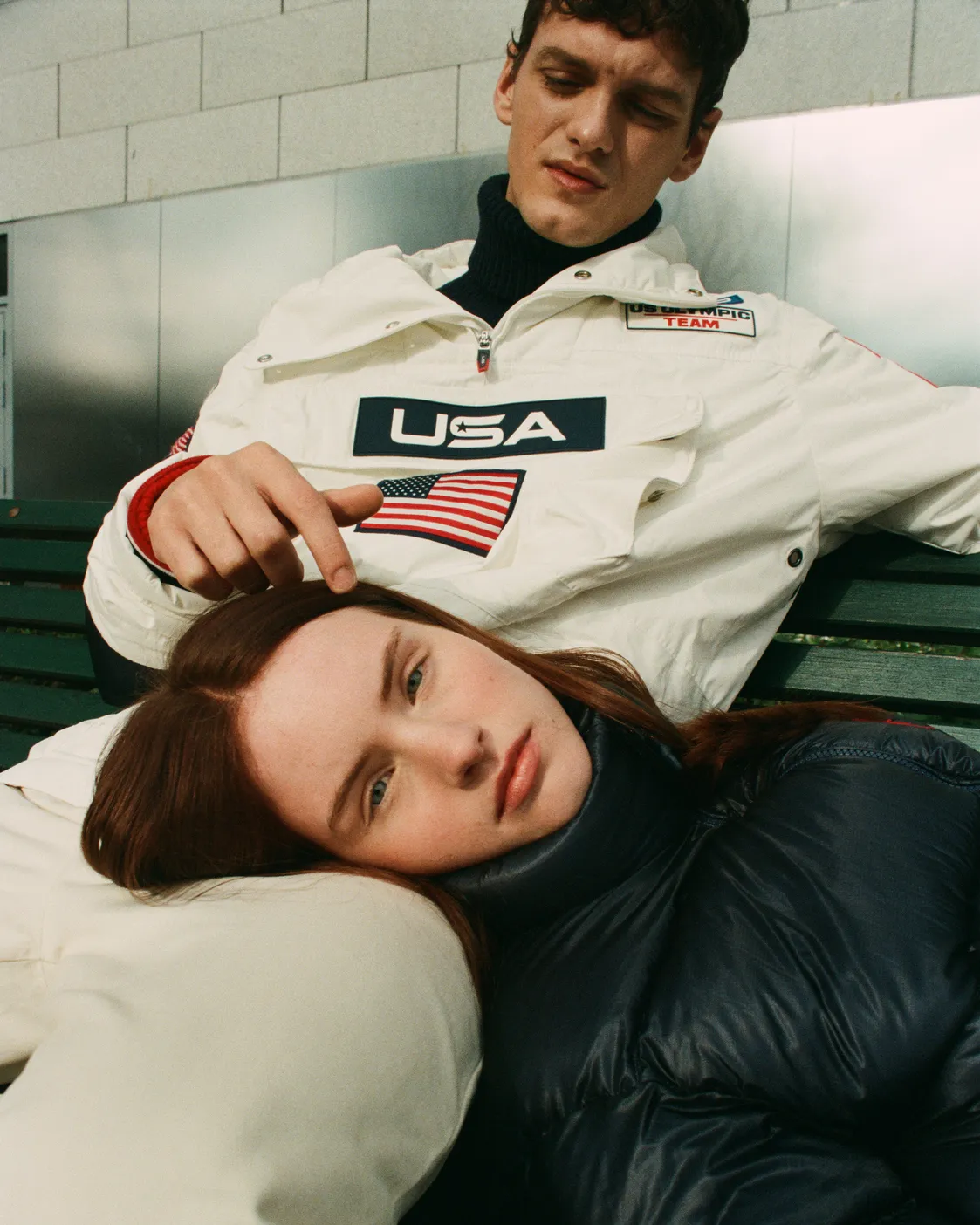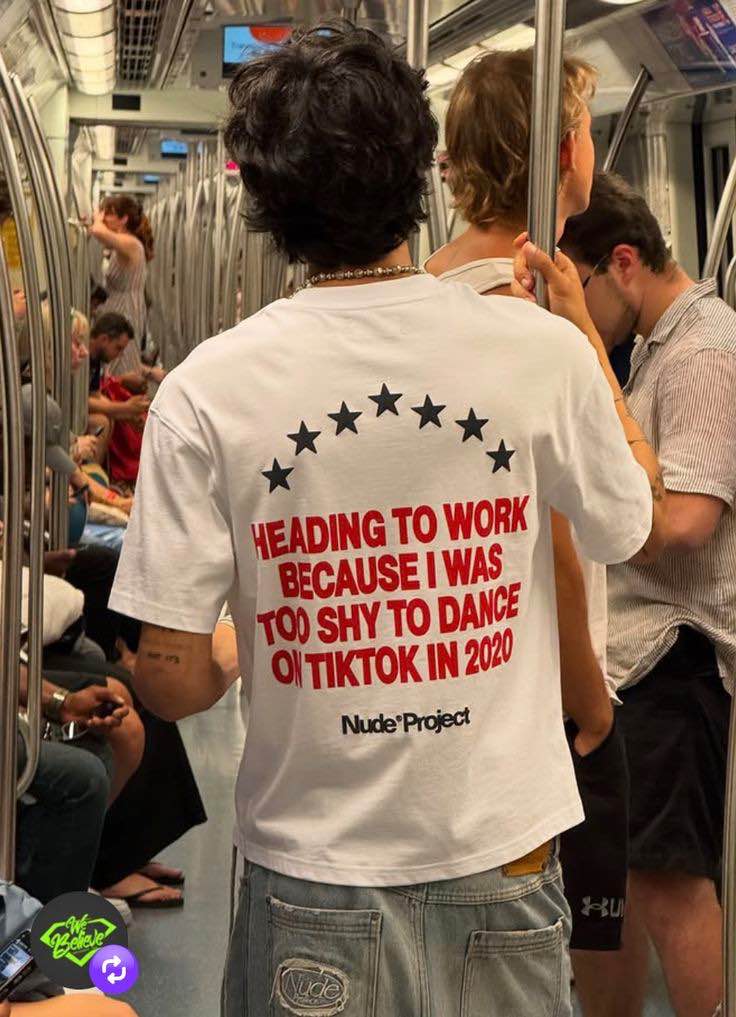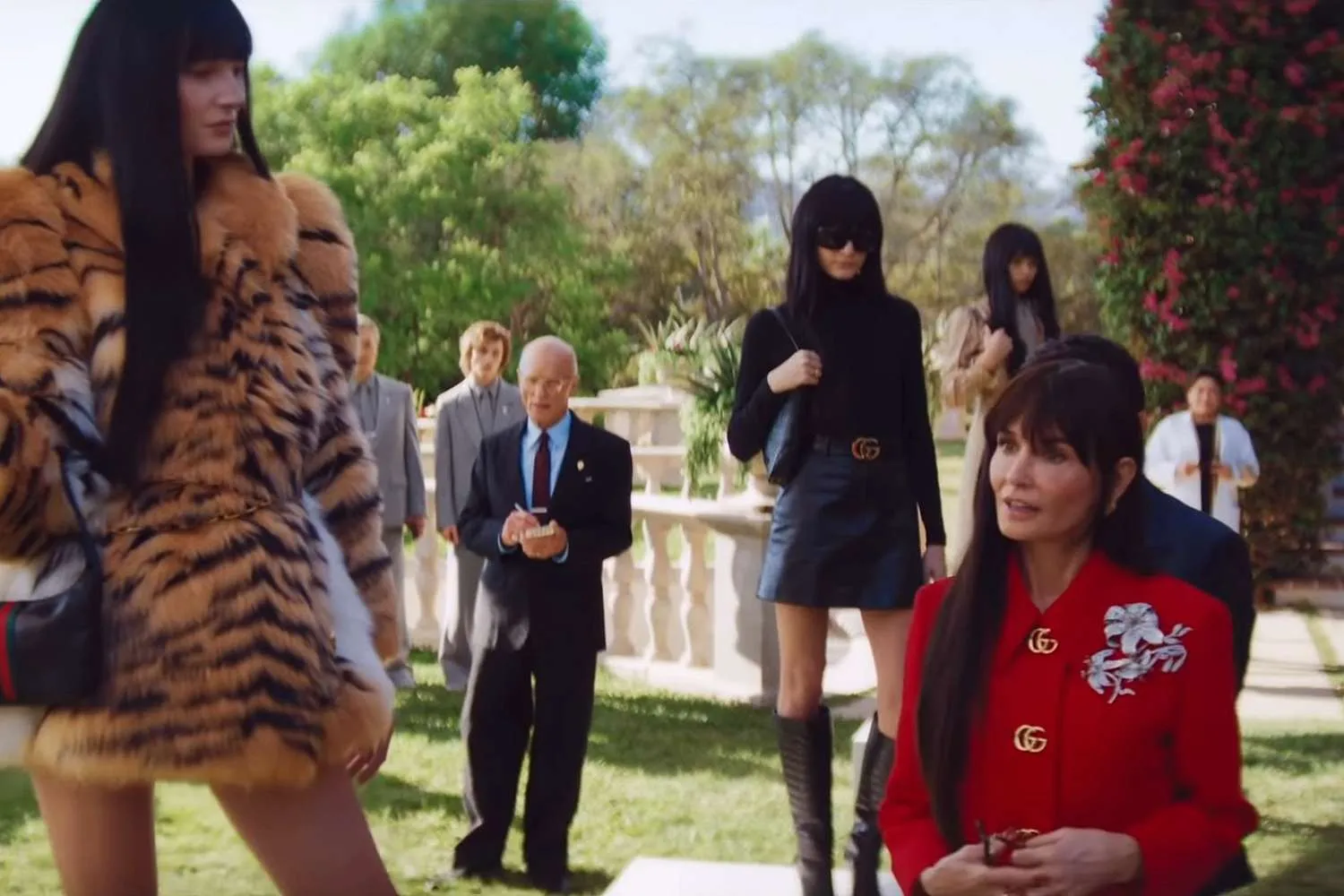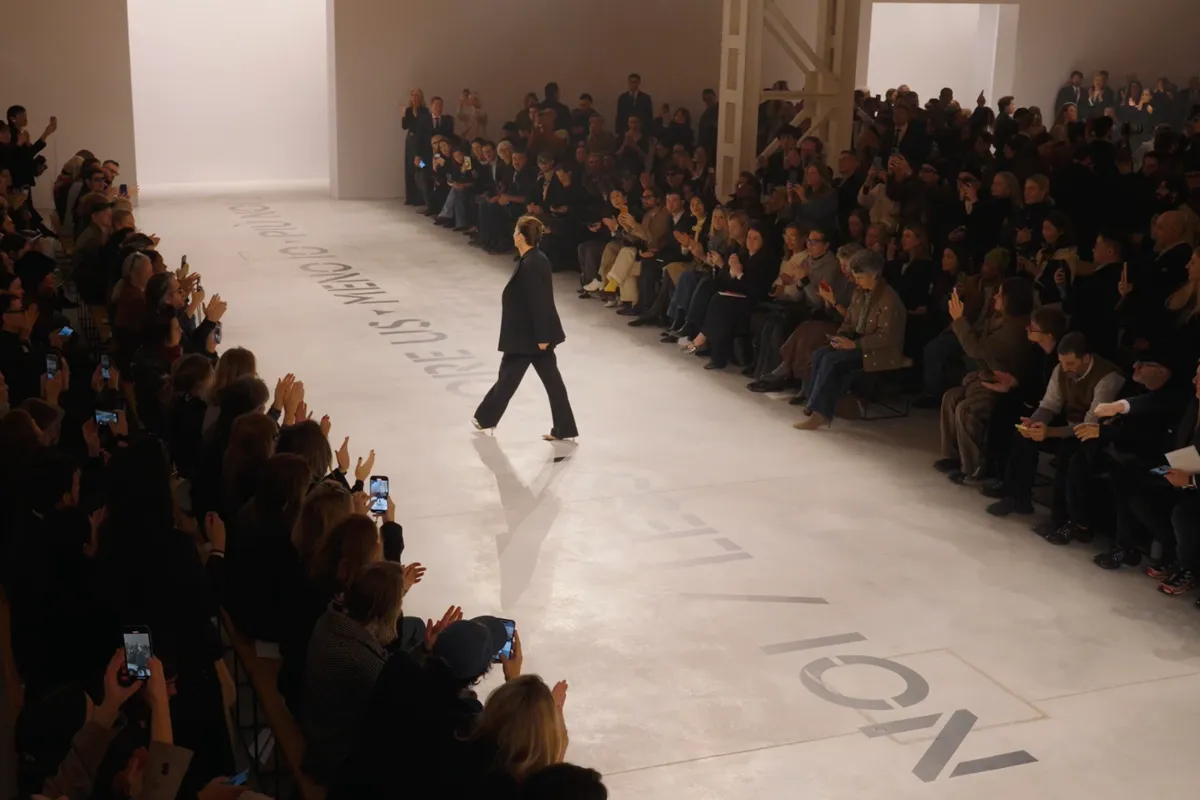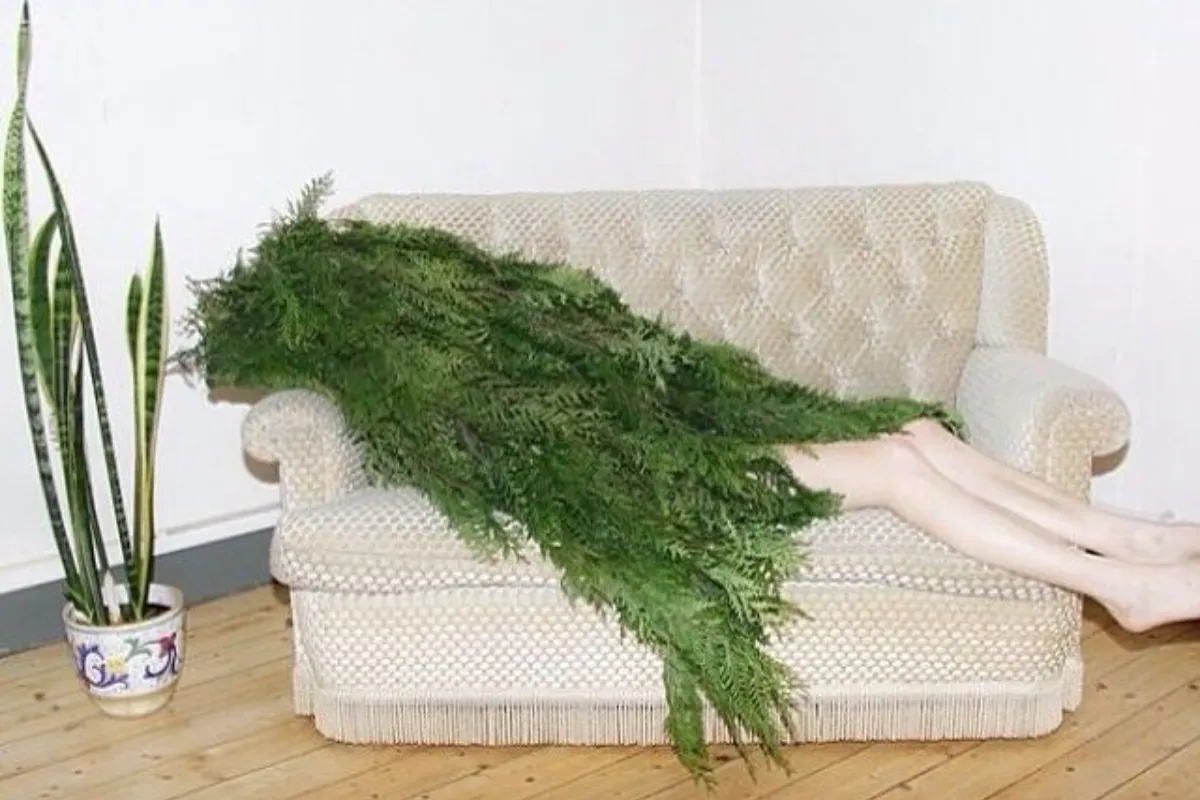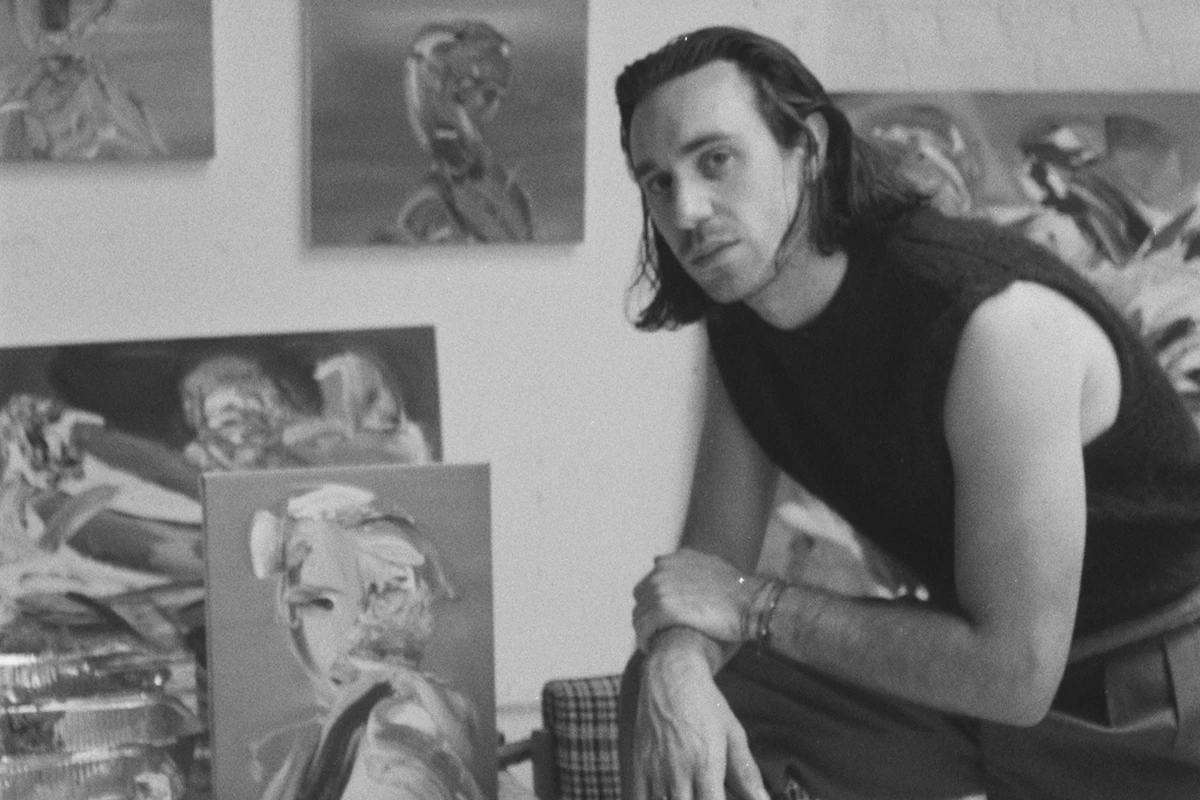
A Look Inside Painter Alexander James’ London Studio
Alexander James, known for his large-scale and layered abstractionist paintings, has a tendency to bring together in his compositions what many would consider to be disparate subjects
Alexander James, who has quickly become well-known for his large-scale and richly-layered abstractionist paintings, has a tendency to bring together in his compositions what many would consider to be disparate subjects. With much, if not all, context stripped away, and the figures deconstructed, James’ imagined scenarios are ethereal and transcendent. For example, in one of the pieces that James is currently working on at his studio, there is a figure that represents his grandfather, what looks to be a woman dancing, and a parrot that James glimpsed in the past few weeks; these subjects never existed together, yet James tactfully brings them together on the canvas to create something new, almost like a collage, rich in juxtaposition.
While portraying these unlikely combinations, there is also an element of James’ work that is deeply tied to history, in particular his family’s past. Last year James had a solo show, entitled Tuck Shop for the Wicked, at Marlborough Gallery in London, which he based on gathered stories about his great-grandfather.
Recently returned to London from a trip to New York, where he completed a residency with the Mack Art Foundation and opened a show at Room57 Gallery, I caught up with Alexander James at his West London studio.
On Alexander James’ residency in New York with the Mack Art Foundation
Dhruv Duggal: You just came back from New York, and completed a residency there.
Alexander James: It was a residency with the Mack Art Foundation. A residency is always stimulating, because it’s producing work in an empty studio. It’s healthy as well, to take a step back from all the paintings around me that are works–in-progress and the finished works in my usual studio, which allowed me to take everything I know, but also include certain new things, and in this case working in New York, there is such an amazing buzz in the city, as you know, and I think I was just picking up on this energy everyday, seeing new things in a visual way and including subtle innuendos in my work.
Dhruv Duggal: Do you think that your process changes when you are working from another place?
Alexander James: There are always the fundamentals that stay, but I do believe that there are new elements that come into play, and I allow myself to be freer in the experimental stage, in the sketching stage and even in the beginning part of the painting.
Dhruv Duggal: And were there elements of the works that you made that specifically drew on things in New York or people you met there?
Alexander James: Definitely, there were some encounters, and obviously in the span of nearly seven weeks there were a lot of interesting moments and incidents, and there are definitely subtle recordings in the paintings, very subtle recordings, it could be the texture on some of the buildings I came across, or it could have been maybe referencing a portrait of someone. So yes, a lot of the the narrative of my paintings are based on past stories and things I’ve written about, but I also might for example take the eyes of someone I met that I thought was interesting, and bring that into a portrait I’m doing with a certain color and include that in the face of the narrative that I’m doing, so it’s a montage of multiple things.
Alexander James discusses his memories and when he realized that he wanted to be an artist
Dhruv Duggal: I suppose a lot of your work seems to relate to your observations and memories, would you say that you have a good memory?
Alexander James: To a degree, yes, there are moments I recall from certain situations. An example being in New York, if we’re still talking about New York, the city is so rich in galleries and museums, I remember going around the Met, and seeing this elderly couple together, and this maybe gave me a reference to about fifteen years ago, when my grandfather was alive, and I remember my grandpa wearing a similar jacket to the gentleman at the Museum, and it instantly reminded me of a time and a location and a place, so I always see texture and elements of uniform as reference points.
Dhruv Duggal: Do you remember much about your childhood?
Alexander James: I guess, yes and no, those formative years are a mix of nostalgia, warmth and bitter-sweet memories. I remember a lot of locations –
Dhruv Duggal: You grew up in London, right?
Alexander James: Yeah exactly, I grew up in London. I remember certain things, definitely. When you say childhood, what years are you talking about, how formative?
Dhruv Duggal: Well, when did you start to consider yourself to be a painter, or an artist?
Alexander James: I remember I used to draw with my grandpa, he wasn’t an artist but he always loved to sketch, so we used to sit and sketch together, he introduced me to a lot of Western films and he brought a lot of culture into my life very early. We used to sketch a lot of still-life objects around his house, like his chess set or a bowl of fruit as a still-life, I just remember that he used to love sketching and we used to do a lot of that, and then he used to take me around to certain museums.
Dhruv Duggal: And when did you realize that this was something you wanted to pursue?
Alexander James: I think it was just an intuition, it just felt like the only thing that I was honestly really interested in. I felt excited by it, I felt lost in it, in a way which led me to want to explore more. I felt like it was where I needed to be.
Dhruv Duggal: If you didn’t end up being a painter, what do you think you’d be doing instead?
Alexander James: I actually don’t know, I just have no idea. I was lucky that I knew what I wanted to do quite young, around secondary school, I never really thought about doing anything else. I just knew that this was the only thing I wanted to do, and I was prepared to do whatever needed to be done to get there. But I don’t know, I have no idea, it’s funny and I think maybe many painters would agree, once you paint everyday and have the routine of going to the studio –
Dhruv Duggal: You can’t imagine doing anything else?
Alexander James: You really can’t, it just becomes a necessity.
On the experience of putting together his first solo show several years ago, and some of the more recent gallery shows that Alexander James has participated in
Dhruv Duggal: What do you remember about your first solo show or your first show with a gallery? How did you feel?
Alexander James: I remember it was a lot of hard work, my first exhibition in London wasn’t even with a gallery, I was really pulling a lot of the weight, I was running around with the paintings, bringing people in. I was wearing many hats, I was young and straight out of grad school, so it was a very different experience back then. It was exciting, it was a very naive time, in a way, I just knew that I wanted to showcase the body of work that I had at the time.
Dhruv Duggal: Was your work quite different then?
Alexander James: I guess it’s always evolved over the years. That show was actually just a painting show that I did, but I’ve always enjoyed playing with other mediums such as video, which brings a lot of ideas back into my paintings. Maybe I don’t really show it outside of the studio, but I’m always playing with photographs, collaging and pulling things together to help visualize the characters that I include in my work.
Dhruv Duggal: Well you’ve certainly come a long way since your first show, I remember seeing your solo show Tuck Shop for the Wicked last year at Marlborough Gallery in London, which paid homage to your great-grandfather. Could you tell us more about the show and this narrative? Was this the same side of the family as your grandfather that you were speaking about earlier?
Alexander James: No this was on the other side of my family, he was based in East London, he moved to London during the war, he was a wheeler-dealer type character. He started a few businesses, but there was one that he got off the ground which was a sweet store –
Dhruv Duggal: The Tuck Shop?
Alexander James: Yeah, I suppose I just called it a tuck shop for the show because that’s a word that connected to my childhood, I went to many schools and one of the schools sometimes had a tuck shop. It was only once every so often, and when it happened everyone went crazy from the sugar rush, so it stuck with me. But back to my great-grandfather, he had a quite remarkable story, he had a connection to sugarcane, so he would go and try to bring it back, and he had this going at a time when sugar was being rationed in London. I only found out about this story a few years ago. So I did a lot of research, I looked at the packaging and I looked into what was popular during that time, and I created scenarios, fictional and non-fictional, and thought about how these characters would exist within some of these stories. And the store was next to a bar as well, it was quite debaucherous, so it’s looking at this idea of communication between the store and the people within the store and the events going on at that time.
Dhruv Duggal: A sort of imagining of these interactions that could have happened?
Alexander James: Interactions, definitely, and during such a crazy time of war.
Dhruv Duggal: I also remember seeing, around this time last summer, the group show, A Celebration of Portraiture, at Marlborough Gallery that you participated in. It must have felt special to have your work shown alongside the likes of Auerbach, Bacon, Freud and others. How was that?
Alexander James: That was really amazing. I kind of grew up learning about these figures, and still do, they are the textbook artists that we used to read about at school. There’s so much history there. I think to just be even part of it, in whatever way, in a small way, or in any way possible, was pretty incredible for me. Even just to see their work closely, in the flesh, is always very exciting, and that was a really interesting show. I think I like that about Marlborough, they always took risks, taking these artists they’ve worked with for many, many years and then incorporating younger artists. It’s a dream for any young artist, any young painter to be around some of the greats. So that was a special moment, a really special moment.
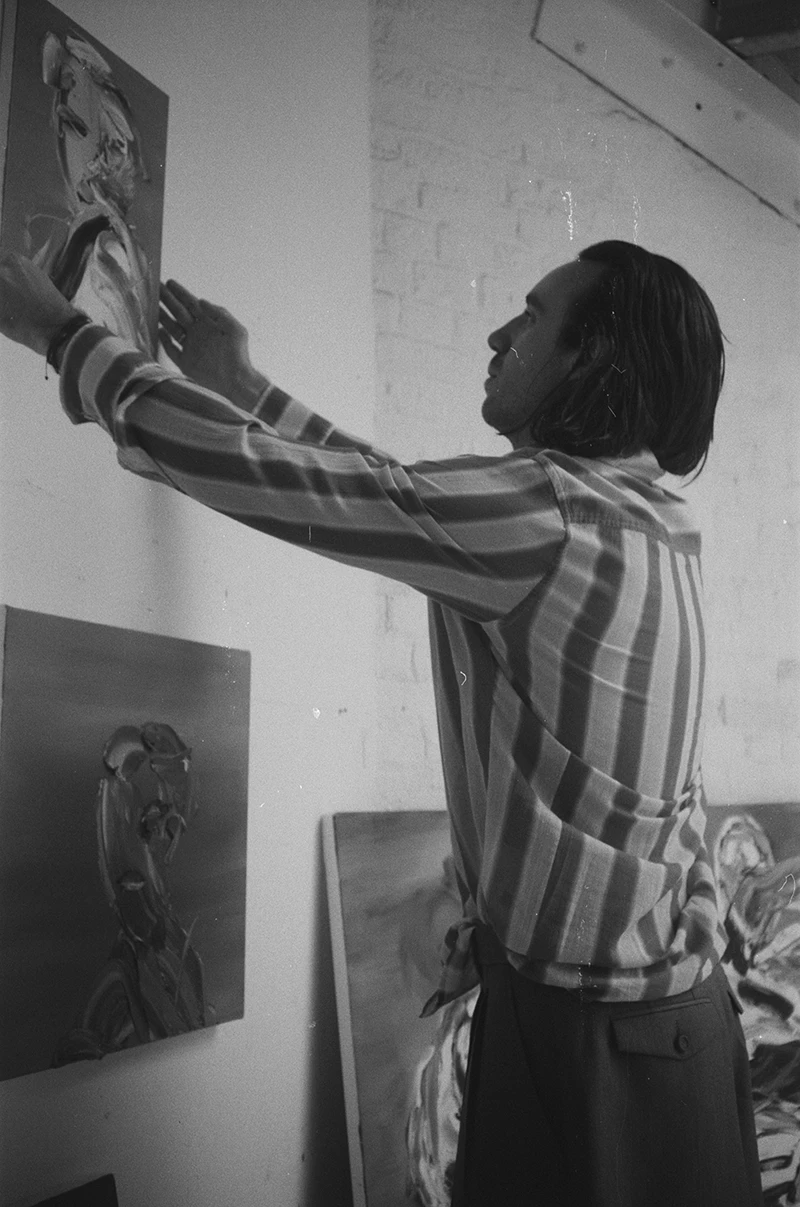

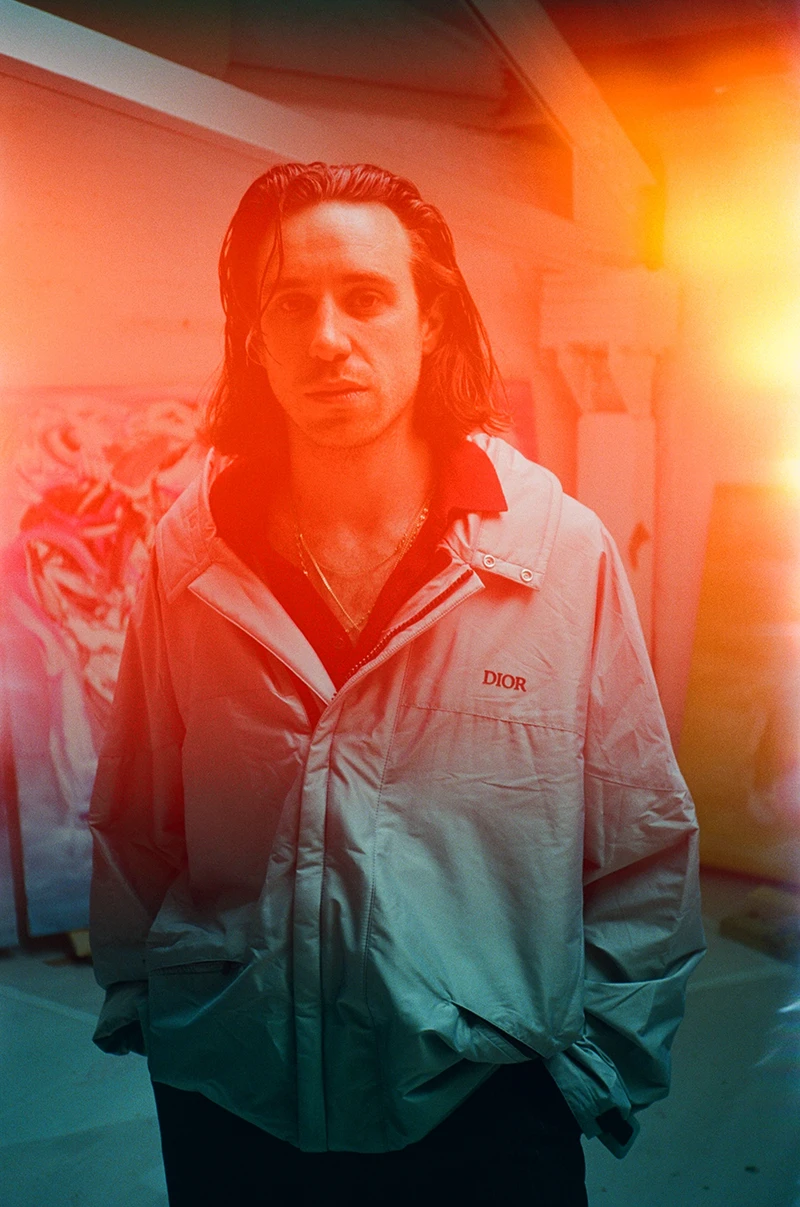
Alexander James’ reference artists
Dhruv Duggal: Do you have any idols or any heroes in the art world or outside of the art world?
Alexander James: There’s a lot of people I look up to. Artist-wise, some of the ones you just named. There’s many, I love to look not just at painters but sculptors too, really any type of artist. Bacon, Freud, de Kooning and Rothko come to mind. Actually they also, once upon a time, all passed through Marlborough’s halls. The whole abstract-expressionist school, I used to look at them a lot many years ago. Monet and Giacometti too, and there are many others as well.
Dhruv Duggal: Are there any specific paintings or pieces that you would say are your favorites of all time, across all of art history?
Alexander James: That’s a really good question. I remember going to Paris and seeing a Picasso show really early on, I remember seeing a lot of the works from his Blue Period, paintings from between 1901 and 1904, and they were just so amazing because, well they were very different to a lot of his later work, and his early work was also different, but you can see certain elements, and how his work evolved from that stage. And then I remember seeing, one of my favorite paintings by Picasso at the Tate Modern many years ago, in its permanent collection, a painting from around the time when Picasso found his cubist form. I’m personally really interested in the deconstruction of a face, and the deconstruction of a body, and how I can deconconstruct my narratives in my paintings.
Dhruv Duggal: Deconstructing and reconstructing.
Alexander James: Exactly, to deconstruct, add layers, remove layers, and reinvite certain parts. I think Picasso was a master at that, he truly knew how to deconstruct the human form.
Dhruv Duggal: Thinking about Picasso’s Blue Period, I remember seeing at your studio on Tuesday a number of pieces that are quite monochromatic, there were a couple which consist mostly of shades of blue and white, and another piece that you’re working on which has a lot of yellow tones. Do you think those are in any way influenced by the Blue Period, or something else?
Alexander James: I think when I use monochromatic colors, like with the paintings you’re talking about, I find that there’s a deeper sense when I work with two tones or a darker palette. With a monochromatic palette especially, in my eyes there’s less indication of time and place, it could be referencing a painting from the 1800s or it could be referencing the Blue Period of Picassso. Restricting myself to not using an extensive palette is something that in some ways people could think would be easier, but other people could think that it’s harder. I actually, at the beginning, found it harder when I first started painting monochromatically. I really enjoy it now because I think it gives a different feeling when I’m painting in those palettes rather than the usual brighter tones. You dig a little deeper.
Dhruv Duggal: Have you seen any shows recently that particularly resonated with you or inspired you?
Alexander James: As we mentioned I just got back from New York, so I saw a lot in New York. I went to a lot of museums there, I went to the Met, MoMA and the Whitney Museum. In terms of shows I saw the Rita Ackermann show at Hauser & Wirth which was great, and also I really enjoyed the Hugh Hayden show at Lisson Gallery and the Stanley Whitney show at Gagosian.
How Alexander James finds inspiration and what he likes to read
Dhruv Duggal: How do you find your inspiration, and get yourself into the mindset to create work? Do you find yourself going to certain places, or do you draw from the people around you?
Alexander James: So getting into that sort of momentum, it actually feels a bit meditative. Painting is a bit like a song and a dance, and for me it helps when I’m in a good mindset, feeling good, have slept well, and in a good routine. I used to think otherwise, but now I think I create my best work when I’m most focused. In terms of what I do in my process, I like to write a lot, you know just writing ideas and stories or things I’ve been told.
Dhruv Duggal: When you’re watching a movie or reading a book, or even just walking around, are there constantly new ideas for paintings coming to mind?
Alexander James: Definitely, sometimes it hits you when you’re not thinking about it. So then I’m always sketching as well, I’m constantly doing very loose, jumbled sketches, things that make sense and things that don’t always make sense, and then I find something within these that will just sort of inspire me to start painting, and then I just go. It’s good to gather information from around you, I keep photos and sketchbooks. Sometimes it’s also great to just leave the studio, and go for walks, and try to have a pause for a moment.
Dhruv Duggal: Do you think there is anything in your method of working that you would say is quite unique to you?
Alexander James: Yeah, every artist has their technique and processes. For me, I like to watch old tapes that are from older generations of my family, and I pause the tapes at certain moments and see scenarios from those times, it’s random, it might be a birthday party or it might be an event or a wedding, and there might be someone in the background who I don’t know but must be connected to me or my family, and then when it gets paused they are suddenly in the frame, and it’s all contextual, because if I just paused it and printed out that frame and showed everyone, people might presume that guy is part of the family. I kind of take that idea and apply it to a lot of the things I do, for me that context is really important. I like the idea of juxtaposition, the randomness of things as well. I think that’s why a lot of my work connects to my family, but there are a lot of historical references too, I love history and I love maybe bringing in some of those things, and removing the current or actual factual context, and turning it into something else.
Dhruv Duggal: Are there any objects in your studio that are special to you, or maybe important for your practice?
Alexander James: Outside of brushes, yeah I have a few things and tools that I use. I keep a lot of photographs, and a lot of books at my studio. I love reading and looking at references from artist books and just discovering new things, but also writings, and I love poetry.
Dhruv Duggal: What sort of books do you like to read?
Alexander James: I recently actually just finished reading a really good book, have you read Story of the Eye?
Dhruv Duggal: No I haven’t.
Alexander James: It’s by Georges Bataille, it’s a really phenomenal book. For me, what I read can really vary between artist biographies, poetry, and other books passed on to me through recommendations. My close friend and former flatmate, who you also know really well, introduced a lot of poetry to me. He put me onto some interesting writers, one of them that really resonated with me was Henry Miller. There are a couple in particular by Miller, Tropic of Cancer was one of the first ones that I read which was interesting, and more recently I read Black Spring. With reading, I found it wasn’t always the most natural thing for me, but I’ve really immersed myself in it, and thrown myself more and more into it.
Dhruv Duggal: What’s the longest period of time you’ve ever gone without touching a pencil or a paintbrush?
Alexander James: You know what, it’s funny because sometimes I try to take a couple of weeks off, without my sketchbook, but then I open up the notes app on my phone and I always end up drawing these little sketches on there, silly little doodles.
Dhruv Duggal: So you can never manage to take a complete vacation?
Alexander James: No, because I think it’s just a part of what we do, there’s so much happening and it’s nice to document those moments, even if it is just a little doodle that might not make sense to most people. If you’re lucky enough to do what you love for a living, I think it’s impossible to stop, I do sometimes switch off for a moment, that’s important, but if I feel like I just need to make a quick drawing, then I absolutely do.
Dhruv Duggal: Do you ever find yourself in a period where you have a creative block? How do you come out of it?
Alexander James: Sometimes I feel less motivated to paint, so I try to get out of it. I’ll just go and leave the studio for a few hours, go for a long walk or find other things to take my mind off it. Because it’s all just your mindset, it’s just how you’re feeling in that moment, so if you can change your mindset by distracting yourself, you’ll come back more alive to paint.
Creating new pieces for the Rennie Collection, upcoming shows and sculptural works
Dhruv Duggal: Finally, I just wanted to ask what’s next for you? Do you have any shows coming up? Anything new that you’re working on? I think you mentioned that you’re planning to create some sculptures?
Alexander James: Yeah, so I’m painting, I’m making two works right now for the Rennie Collection in Vancouver. I’ve made a couple of works for a group show which will be in November in New York, and there will be another show in the US later in the year as well which will include sculpture alongside paintings, I’m working at the moment on rendering my first sculpture for this. And there are lots of other projects up and coming that I’m really excited about.
Alexander James
Alexander James, born in 1993, is a London-based artist, best known for his large, abstractionist oil paintings. James graduated from the Camberwell College of Arts in 2015 and has exhibited his work internationally.
Dhruv Duggal
